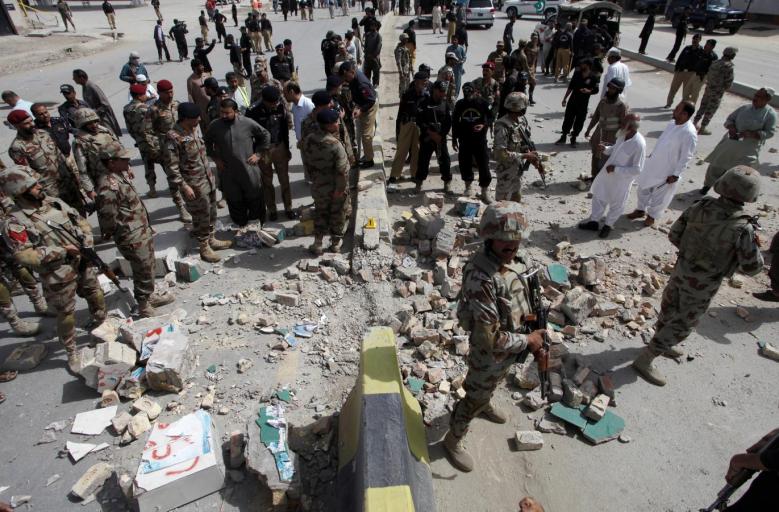A faction of the Pakistani militant group Lashkar-e-Jhangvi (LeJ) cooperated with terror group ISIS this week in an attack on a police college that killed at least 63 people, the group’s spokesman told Reuters on Wednesday.
The confirmation of a link between the two groups will stoke fears that ISIS, based in Syria and Iraq, is building a presence in Pakistan.
ISIS ultra-hardliners claimed responsibility for Monday’s attack in the city of Quetta and released photographs of the purported gunmen who killed cadets during a raid that lasted nearly five hours.
Pakistani authorities, who in September said they had crushed ISIS’ efforts to enter Pakistan, pinned the blame on Al-Alami, a faction of LeJ.
Al-Alami spokesman Ali bin Sufyan told Reuters by instant message: “We have no direct link with ISIS, but we have done this attack together.”
He declined to give specifics, saying only: “We will provide help to anyone who asks against Pakistani security forces, and we will also accept help for this.”
General Sher Afgun, a senior military commander in Baluchistan, told media that intercepted calls suggested the gunmen had received orders from across the border in Afghanistan.
Afghan officials have consistently denied sheltering anti-Pakistan militants, but the border is not fully under government control.
The Quetta attack has also reignited a debate in Pakistan about the need for authorities to target all militant groups, not only those who are actively fighting against the state.
Pakistan has for its part been accused of harboring leaders of the Afghan Taliban in Quetta as well as several militant groups opposed to the Indian government, something Islamabad denies.
Critics say that, by not stamping out radical groups and their ideologies, Pakistan is making itself a recruiting ground for extremist militants.
